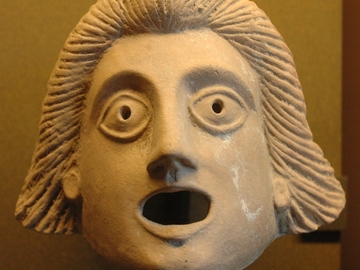The audience for friend Xerxes’s column seems to be composed mostly of Protestant ministers. At least, those are the readers who comment. I was interested if not surprised to see that they seem universally to have approved of his last column, about putting a warning label on Christianity.
“Preach on, brother, preach on!”
“Your column should be nailed onto every religious building’s front door ―a new 95 Theses.”
“There is a good case that organized religion has done more harm than good.”
“After a lifetime in various forms of various ways to share spiritual health care, I have concluded that religions, and in particular Christianity, are toxins; we spend most of our lives trying at least to turn it from poison to a healing substance. Sometimes one wonders if rescuing the bible, defending God, examining the sins of scripture, finding original blessing and reclaiming Jesus has had any real effect. Maybe the smile message we should be about is ‘Don't swallow it!’”
It might come as a shock to many that the average Christian minister does not much believe in Christianity. Having spent a lot of time with Christian ministers in grad school, I am not surprised.
In a sense, too, they are right. “Organized religion” is toxic. The Bible itself, the New Testament, warns us so. But not in the sense they mean. Religious authorities are inclined to be hypocrites, Pharisees, playing a role they do not themselves believe in. That is the original meaning of “hypocrite”—an actor wearing a mask.
This is perhaps not a clear example. These ministers are not exactly concealing their true feelings: they say they want them nailed to the church door, and one imagines they express it in their counseling. But if they feel this way, why are they ministers? And isn’t calling themselves a Christian minister without endorsing Christianity itself a grievous deceit? Shouldn’t they, in conscience, refer the seeker on to someone else who does believe in it?
I remember explaining to Xerxes once why I had not become a Catholic priest: because I felt my faith was not strong enough. I was not sure I could commit to always believing all of Catholicism, into the indefinite future.
And his answer, at that time, was immediate: “so what?”
I see the same phenomenon in teachers. Our teachers do not actually believe in teaching anything. Instead, the class is supposed to “construct their own knowledge.” And the teacher is free to do the same.
To be honest, I just don’t understand this attitude. Maybe the explanation will come to me. In the meantime, I think it is important to notice it. I guess the moral is not to blindly trust the “experts” in any field.













No comments:
Post a Comment